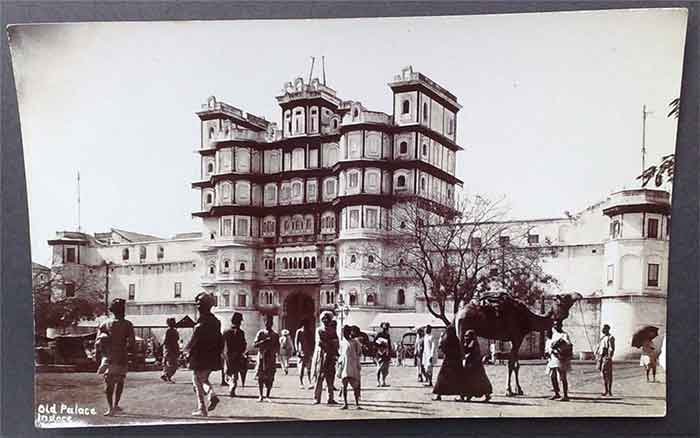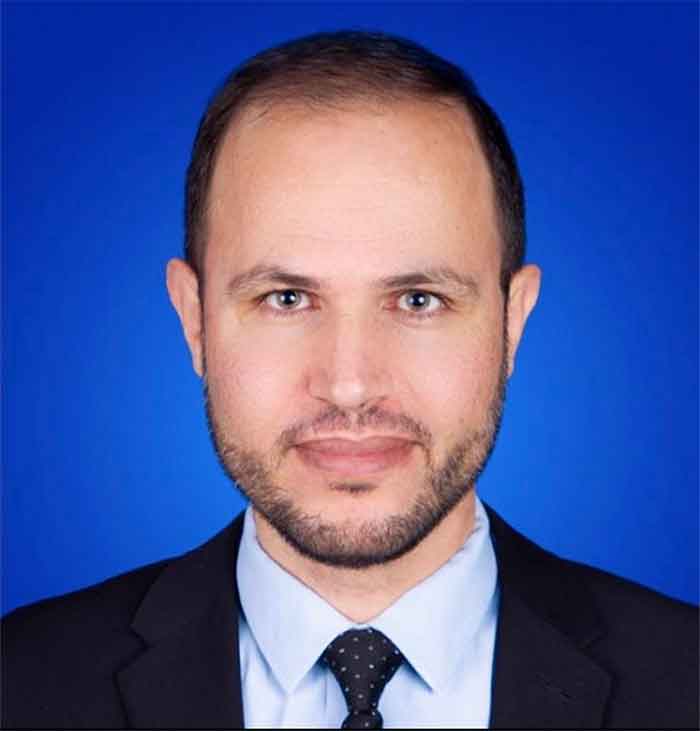
A memoir is a sort of autobiography. You record only those things that have affected you. You don’t do any research for it, except occasionally to check a date or fact. You write what you remember.
- Our Home
I was born in Mysore in 1943 and we moved to Indore in 1945. I left Indore to study electronics at IIT Kharagpur, West Bengal in 1961. So this memoir mainly covers these 15 odd years. However I kept on going back to Indore. Initially during Durga Puja and summer vacations, when IIT was closed and later once a year or so. In recent year it has been reduced once in 2-3 years. The sections about Albert Howard and Patrick Geddes belong to my interests during later years, but my having lived in Indore contributed to my interest in them.
I spent my childhood at no. 39, Harsiddhi South, Indore. There were five of us – my eldest brother, then three elder sisters and I, the youngest one. We lived on the first floor and we had a walled terrace some 6 feet by 30 feet with a 4 foot wall at the front of the house. We spent hours on the terrace playing, lying down on all the mattresses that were piled on an iron cot in a corner or just looking down on the road.
The terrace was the only paved part of the house. Rest was mud floor and there was no electricity initially. The toilets and water sources were downstairs and we had to pull buckets of water with a rope, like drawing water from a well.
My mother was practically illiterate whereas my father was a Sanskrit scholar and a musician and a school teacher. They moved in different social circles. My mother visited house maids socially on festival days or even otherwise and I tagged along with her. This proved a great boon to me during my later ‘activist’ days. I never thought of poor as ‘them’.
- Sanskrit and Music
My father came from Karnataka to Indore during the late twenties. This is related to Sanskrit and music. He was studying Sanskrit for the Sahitya Vidvan degree in Mysore. Sarvapalli Radhakrishnan was his class mate. My father got involved in some demonstration in the freedom movement and got shot in the leg. Mysore was a princely state and had a British Resident. The orders were received from the Residency to arrest my father. The then Prime Minister of Mysore, Sir Mirza Ismail, was a patriot. He came to my father’s hostel and told him to clear out by morning otherwise he would have to arrest him. He also suggested my father to go to Indore – another princely state that often sheltered Indian patriots.
My father arrived in Indore without knowing any one or any local language – Malwi, Hindi or Marathi. He sat down in front of the Sri Krishna Cinema hall and started singing Kannada Bhakti songs. Someone went to Mr. Murthy, a Kannadiga who lived nearby, and told him that someone from your region is sitting on the footpath and singing.
Eventually my father met Devidas Petiwale (Peti means harmonium), the court musician and became his disciple. Devidas accepted my father not just for his voice or talent. He was blind and wanted access to the current debate going about Indian music. In 1909, V. N. Bhatkhande, under the pseudonym ‘Chatur-Pandit’ had published Shri Mallakshaya Sangeetam, a treatise, in Sanskrit, on the theory of music in slokas and describing the important ragas, and Devidas wanted to know what the books said. My father’s knowledge of Sanskrit and music was very useful.
He also learnt playing the Been, the North Indian Veena from Babu Khan, the last exponent of the instrument. Babu Khan would come, give a lesson for may be up to 15 minutes, tell my father that he (my father) was quick in learning, collect his fee of one rupee and would go and buy his bottle! Those were the days! He also learnt Tabla from Zehangir Khan who lived very close to our house. The Indore Gharana produced Amir Khan, the most purist musician in the North Indian tradition.
- Education
Indore was a hub of education for the entire region of Madhya Pradesh, Rajasthan and Gujarat, particularly for graduate and post graduate studies. In Arts it was Christian College, where my sister studied, in Science it was Holkar College where I studied, for Commerce it was Gujarati College and there was a Law College also where my brother-in-law studied. Indore also had and an agriculture college, a medical college and a polytechnic (where my brother studied) which later became an engineering college. Today of course it has scores of engineering college and IIM to boot.
However it is for the school education that Indore has a special place. Indore was a hub of Montessorians. There was Shalini Moghe who ran Bal Niketan and a training school for Montessori teachers. She was trained by Montessori herself in Karachi. My own school, Bal Vinay Mandir run by Maitreyee Padmanabhan was an important Montessori school. Both these ladies got Padma Shree awards. Then there was the freedom fighter Kashinath Trivedi. He was an educationist and was the first education minister after independence in the Madhya Bharat State. But he is better known for his translations of Giju Bhai Badheka’s writings from Gujarati to Hindi. They are thirteen small books, the most original work in Montessori education in India.
- Books and Libraries
Today I am a bibliophile. It began in my childhood. I received a gift of 101 small Hindi books. They were small format, large font, 16 page booklets. There were all kinds of stories in it –Panchatantra, adventure, animals – kind of stories we read in Chandamama. Oh, yes we subscribed to Chandamama in Hindi. We did not have bookshelves. My books were kept in the Taanpura box and my father’s old books were in a tin grain silo – two feet square and four feet high!
In summer we used to subscribe to a Marathi ‘Ghar Poch’ (Home delivery) library. He used to come on a bicycle twice a week and used to give us two novels and two magazines. I read a lot of rahasya katha (crime stories) of Baburao Arnalkar.
One of my father’s colleagues had good access to the Shri Madhya Bharat Hindi Sahitya Samiti Library. Set up in 1910 it is one of the oldest Hindi institutions in India. The Samiti was first established as a library. The library of the Samiti is still one of the most eminent libraries in Madhya Pradesh. There are about 25,000 books in it. Its journal Veena has been regularly published since 1927 till date. Almost all the great authors in Hindi have published in it. My father’s colleagues used to bring eight books every Friday – mainly fiction but also about Hindi literature because my middle sister Saroj was studying for the Sahitya Ratna degree in Hindi. By that time I had become an indiscriminate reader and read everything!
- Cricket
Ramachandra Guha once wrote that Indians have three passions: Bollywood or the Bombay Hindi cinema, Cricket and Elections. Indore is home of one of these three passions. Probably no city has produced as many great cricketers as the Holkar team of Indore has. Every cricket fan in India knows the names of C. K Naidu, C. S. Naidu, Mushtaq Ali, B. B. Nimbalkar, Jagdale and Chandu Sarwate. The Ranji trophy match against Mysore in 1945/46 produced the highest score in one innings – 912 for eight declared. In that match, Rameswar Pratap Singh scored six hundred runs – an unbeaten record till date.
C.K. Naidu lived very close to our school and some children dared to visit him. They brought fantastic tales – the gold bat and ball he got, the ball that hit the Tower of London and things like that. Mushtaq Ali lived in a humble house near Sanyogita Ganj High School. He often walked in the school play ground and informally taught school children how to bat. Indore was small town then and there were no cricket coaching academies! C. K. Naidu’s daughter Chandra Naidu was my sister’s class mate. She became the first woman radio commentator of cricket in the world.
- Albert Howard (1873 –1947)
In one of my trips to Indore in early eighties I visited the Rupayana bookstore – the only bookshop that kept books for the bibliophiles. I picked An Agricultural Testament by Albert Howard. I knew nothing about him but the title interested me. I browsed through the book and kept it.
Albert Howard was the father of Organic Farming. He came to India as a Royal Botanist and worked at the Pusa Institute in Bihar. There he developed a critique of chemical farming and the methods of agricultural science. He came to Indore to try out his ideas. He spent seven years (1924 -1931) in Indore at the Indore Institute of Plant Industry and developed his ideas. He perfected the Indore method of composting and finally in the forties he published the Testament. To date it remains one of the most important books on Organic Farming.
In 1985 I spent a lot of time in Bhopal following the gas accident. My old friend Ms. Lorry Benjamin was at Friends Rural Centre, Rasulia (a Quaker Farm) in Hoshangabad. Around that time Fukuoka (of One Straw Revolution fame) spent several months at FRC Rasulia. So Lorry got interested in Organic Farming and bought a farm in Kesla near Itarsi. She asked me to help set up an NGO for it. So we set up the Sir Albert Howard Memorial Trust (SAHMET).
On one of my trips to Indore I searched for the site of the Indore Institute of Plant Industry. The present Agricultural College is situated on that site. I met the librarian and he showed me papers of Gandhi’s visit to Albert Howard and how Gandhi rewrote two pamphlets on composting by Alfred Howard and published them in Harijan. Now they are available in a small booklet form in Hindi and English from Navjivan Press.
Since then I have always been involved in Organic Farming and Permaculture and have lived in such farms for several years.
- Patrick Geddes (1854 –1932)
Around 1982 or so I read an article with an arresting title, Nagar Yoga. It was about Patrick Geddes, father of town planning as if people mattered. Between 1915 and 1919 Geddes wrote a series of “exhaustive town planning reports” on Indian cities. And the most important among was the two volume town plan of Indore! So my curiosity was aroused.
In urban planning, as Peter Hall says in Cities of Tomorrow, we must begin with Patrick Geddes. Patrick Geddes was pioneer in people centric urban planning and regional planning. In his word, “Town planning is not mere place-planning, nor even work-planning. If it is to be successful it must be folk-planning.” It was he who introduced the ‘Diagnostic Survey’, ‘Conservative Surgery’ (as against demolition), planning for health and planning for open spaces and trees. He influenced town planners all over the world. Lewis Mumford and The Regional Planning Association of America and its journal The Survey played an important part in spreading his ideas.
Patrick Geddes was in India during 1915-1925 and he carried out some 60 town planning exercises. Fortunately, a book about him, Patrick Geddes in India has been reprinted in India and we have access to most of his ideas now. I was personally involved in reprinting the book.
I was looking for Geddes’ books and had made an enquiry to Murthy of Select Books in Bangalore. One day he produced a copy of Patrick Geddes in India. I was about to pay Rs 300 to him for that slim volume when a thought occurred to me. I wrote out a cheque for five thousand rupees to him and asked him to reprint it. That proved to be a very successful project and the book has gone into second edition also. Ramchandra Guha wrote the preface to it. There is a renewed international interest in Patrick Geddes and the book sold well.
I would like to end with a simple quote from Patrick Geddes: “Town planning … should start by the development in youth of a civic consciousness, working up through a knowledge of the immediate locality and city to a larger and most general grasp of their problems. … There is, therefore, a great need of public co-operation; of an ever-increasing body of active citizens who will no longer leave all matters to official authority but work with the municipal representatives.”
The Indore report was a collector item for a long time. There is now an internet copy but it is not very satisfactory. Now a society in Indore has reprinted it.
Patrick Geddes was a sociologist and a polymath. He held a position in Sociology and Civics at Bombay University from 1919 to 1925. He wrote a biography of Jagadish Chandra Bose and had correspondence with Tagore on education. And of course he wrote extensively on town planning.
Today when the world and India are looking for alternatives, I think the writings of these two foreigners – Albert Howard (English) and Patrick Geddes (Scot) are increasingly important. I have been involved in the Transition Town Movement and knowing the works of these two has been an extremely enriching experience for me personally. And all because I spent so many years in Indore!
T. Vijayendra (1943- ) was born in Mysore, grew in Indore and went to IIT Kharagpur to get a B. Tech. in Electronics (1966). After a year’s stint at the Saha Institute of Nuclear Physics, Kolkata, he got drawn into the whirlwind times of the late 60s. Since then, he has always been some kind of political-social activist. His brief for himself is the education of Left wing cadres and so he almost exclusively publishes in the Left wing journal Frontier, published from Kolkata. For the last nine years, he has been active in the field of ‘Peak Oil’ and is a founder member of Peak Oil India and Ecologise. Since 2015 he has been involved in Ecologise! Camps and in 2016 he initiated Ecologise Hyderabad. He divides his time between an organic farm at the foothills of Western Ghats, watching birds, writing fiction and Hyderabad. He has published a book dealing with resource depletions, three books of essays, two collections of short stories, a novella and an autobiography. Vijayendra has been a ‘dedicated’ cyclist all his life, meaning, he neither took a driving licence nor did he ever drive a fossil fuel based vehicle. Email: [email protected]
















































